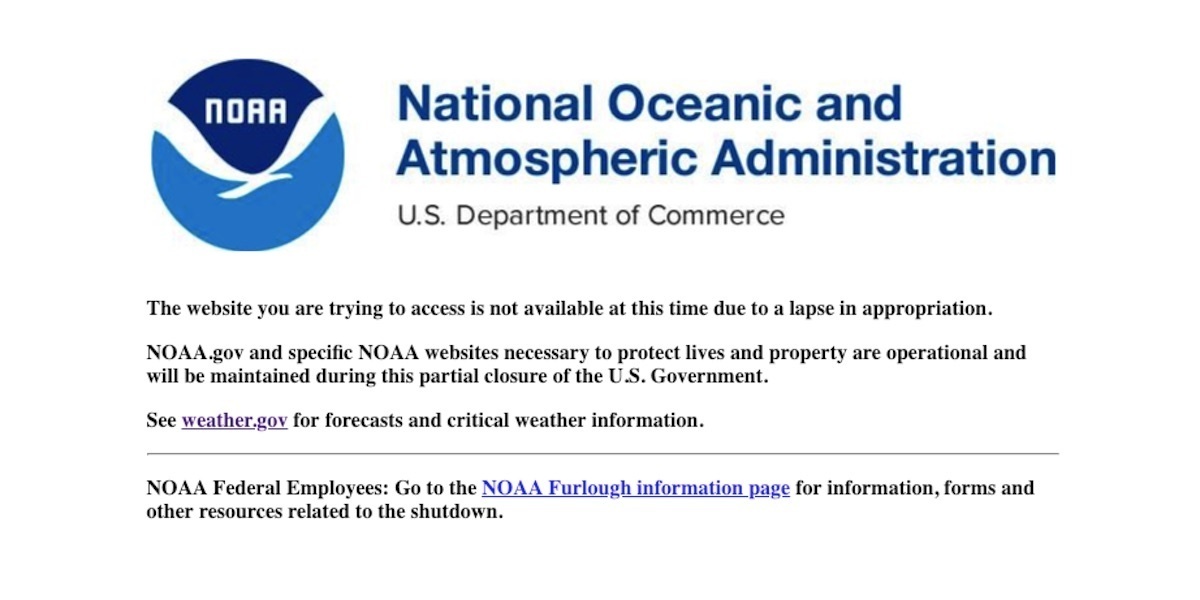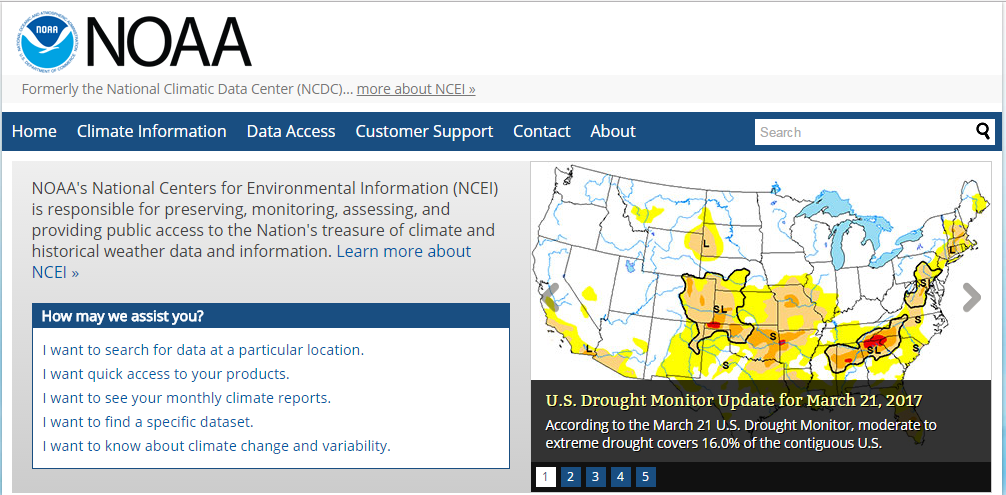

A number of websites for the National Oceanic and Atmospheric Administration (NOAA) are currently unavailable for public access due to a “lapse in appropriations” from the ongoing government shutdown, an agency spokesperson told The Hill.
For instance, the website for the National Centers for Environmental Information (NCEI)—a vast and significant archive of historical climate, oceanic, atmospheric and geophysical data—redirects to https://governmentshutdown.noaa.gov/.
The online portal is a publicly available resource and is vital for studies on climate change and other earth sciences.
But the page now states: “NOAA.gov and specific NOAA websites necessary to protect lives and property are operational and will be maintained during this partial closure of the U.S. Government.”
“See weather.gov for forecasts and critical weather information,” it adds.
Parts of the U.S. Government are closed & this account will not be updated. @NOAA websites & social media necessary to protect lives & property WILL be maintained: For critical weather info, see https://t.co/ll4iygvcNk. Learn more: https://t.co/0oUZRYNMzk. pic.twitter.com/tstxUJk7CO
— NOAA NCEI (@NOAANCEI) December 26, 2018
The NOAA spokesperson was “unable to comment on the number of pages across the agency that are currently redirected” and did not comment on why the sites were pulled entirely instead of allowing archived data to remain online, according to The Hill.
The National Centers for Environmental Information, headquartered in Asheville, North Carolina, hosts “the world’s largest climate and weather data archive,” according to a NASA blog post.
It holds a trove of environmental information, from Thomas Jefferson’s weather observations to near-real time satellite remote sensing data, the post noted.
The NCEI is “the nation’s leading authority for environmental information,” a National Parks Service (NPS) blog post stated. NPS listed the website as one of the top online tools “to help people identify climate threats and vulnerabilities, as well as reduce their risks from the impacts of climate variability and change.”
Screenshot of NOAA’s National Centers for Environmental Information website before the shutdown
NCEI represents the merger of three former NOAA data centers: the National Climatic Data Center, the National Geophysical Data Center and the National Oceanographic Data Center. The website for each individual center redirects to the shutdown page.
That’s not the only way the partial U.S. government shutdown has delayed or disrupted scientific research. Affected agencies such as the National Science Foundation have stopped awarding research grants.
Government scientists—as well as university researchers, nonprofits and private companies that collaborate with the government—have also seen their work jeopardized due to lack of federal funding, the Associated Press reported.
How the #GovernmentShutdown Could Impact the Nation’s Environment https://t.co/7OBrP0EHJQ
— EcoWatch (@EcoWatch) December 28, 2018

 233k
233k  41k
41k  Subscribe
Subscribe 
